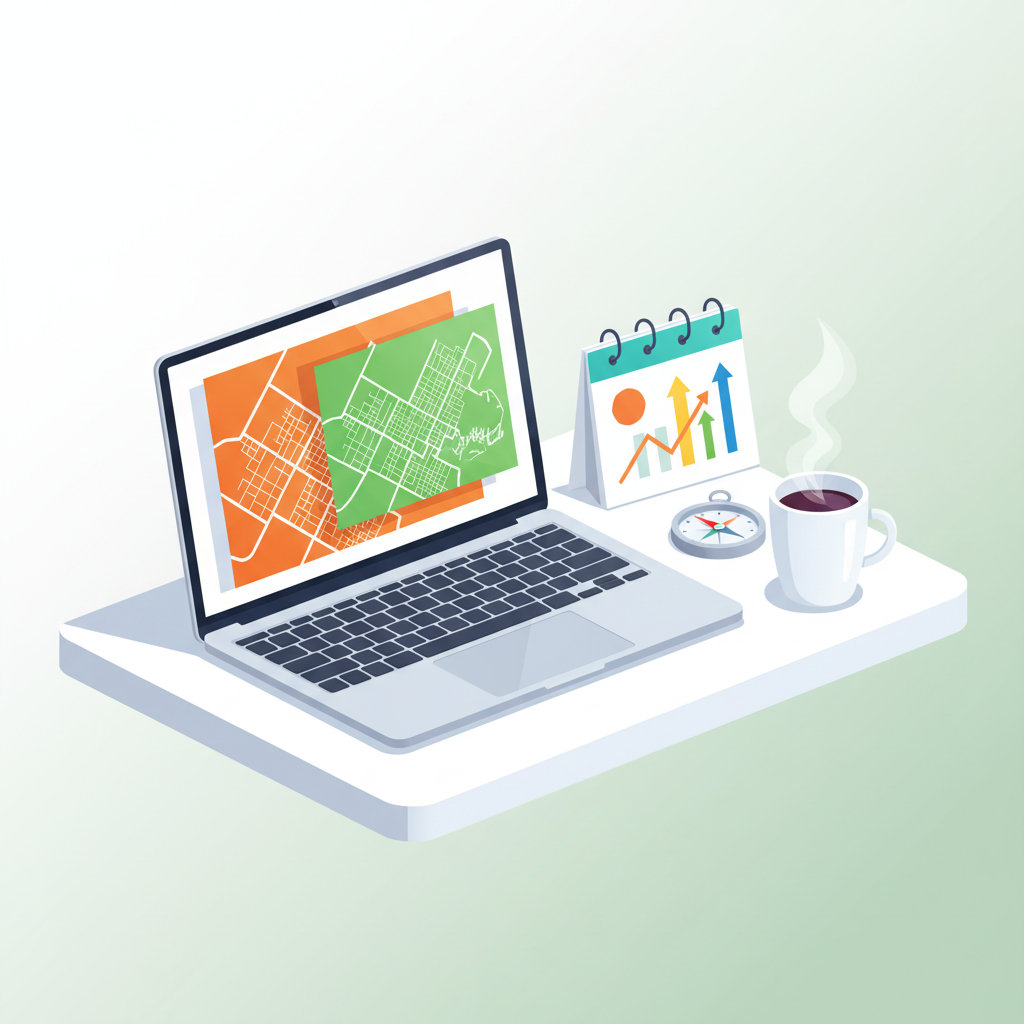Key Takeaways
- Boston ecommerce brands must prioritize SEO to stay visible in AI-driven search results in 2025.
- AI assistants influence customer purchasing decisions more than direct visits to online stores.
- Products not featured in AI-powered answers risk being overlooked by potential Boston customers.
- Integrating SEO strategies is essential for ecommerce brands to remain competitive in the Boston market.
Table of Contents
- Why Boston Ecommerce Brands Can’t Afford to Ignore Search in 2025
- What Makes Boston Ecommerce SEO Different (And Why Generic Strategies Fail Here)
- The ESSO Co Framework: Agentic SEO for Boston Ecommerce Stores
- Technical Foundation: What Boston Ecommerce Sites Must Fix First
- On-Page Optimization That Actually Converts Boston Shoppers
- Content Strategy: Building Topical Authority for Boston Ecommerce
- Answer Engine Optimization (AEO): Capturing AI-Powered Boston Buyers
- Platform-Specific Optimization: Shopify vs. WooCommerce for Boston Stores
- Common Boston Ecommerce SEO Mistakes (And How to Fix Them Fast)
- Measuring What Matters: Ecommerce SEO KPIs for Boston Brands
- Choosing a Boston Ecommerce SEO Partner: What to Look For
- Building Compounding Organic Growth for Boston Ecommerce
Why Boston Ecommerce Brands Can’t Afford to Ignore Search in 2025
ChatGPT now serves 2.5 billion prompts daily, and AI Overviews appear in 13% of all Google searches. Your Boston customers aren’t browsing your Shopify store first, they’re asking AI assistants what to buy, who to trust, and where to shop. If your products aren’t mentioned in these AI-powered answers, you don’t exist in their decision-making process. Book a Free AEO and SEO Strategy Call to ensure your brand is visible where it matters most.
I’ve seen this shift firsthand managing 7 and 8-figure Boston ecommerce brands with over $250M in combined annual revenue. Traditional SEO alone won’t capture these AI-mediated buyers. You need Agentic SEO, human strategy paired with AI execution, plus Answer Engine Optimization (AEO) to stay visible where purchase decisions actually happen. Learn more about how AI is transforming ecommerce SEO on our blog.
This guide covers what’s working now for boston ecommerce seo services: from technical foundations that convert local traffic to AI-optimized content systems that scale at speed. Whether you’re running a DTC Shopify store in Back Bay or managing Amazon FBA from Cambridge, these strategies will help you dominate search while competitors cling to outdated playbooks.
What Makes Boston Ecommerce SEO Different (And Why Generic Strategies Fail Here)

The Boston Buyer Journey in 2025
Boston’s hyper-competitive market demands surgical precision. High CPCs, sophisticated buyers, and seasonal demand patterns from tourism and education cycles create unique challenges. A generic “winter boots” strategy fails when you need to capture “best winter hiking boots Cambridge” during October’s peak research season.
Geographic nuance matters more than most agencies realize. Targeting “Boston” broadly misses micro-opportunities in Somerville’s tech crowd, Brookline’s affluent families, or Cambridge’s student population. Each area has distinct search behaviors, price sensitivities, and product preferences that require tailored keyword mapping.
Platform-Specific Challenges for Local Brands
Most Boston DTC brands run on Shopify or WooCommerce, and optimization requirements differ drastically between platforms. Boston’s tech-savvy audience also uses ChatGPT and Perplexity heavily for product research, if your brand isn’t cited in AI answers, you’re invisible during the critical research phase.
| Platform | Speed Optimization | Schema Implementation | Multi-Location Support |
|---|---|---|---|
| Shopify | Theme-dependent, app limitations | Limited JSON-LD control | Requires third-party apps |
| WooCommerce | Full server control, caching flexibility | Complete schema customization | Native WordPress geo-targeting |
The ESSO Co Framework: Agentic SEO for Boston Ecommerce Stores
How Always-On AI Content Systems Work
Agentic SEO means AI content agents running 24/7 to research, draft, enrich, and publish, not keyword stuffing or AI spam. While traditional agencies publish 4-8 articles monthly, our stack ships 10x that volume while maintaining quality and brand voice. This isn’t about replacing human strategy; it’s about amplifying it at machine speed.
For ecommerce specifically, the system integrates directly with your Shopify catalog, auto-syncing with collections and generating intent-driven content. Instead of generic “running shoes” articles, it targets “best running shoes for plantar fasciitis Boston runners”, the exact queries your customers ask AI assistants.
The 100-Day Traffic Sprint: Week-by-Week
Our Traffic Sprint methodology frontloads results through strategic sequencing. Weeks 1-3 focus on technical foundation: Core Web Vitals optimization, schema implementation, and site architecture fixes. Weeks 4-10 build topical authority with 40-60 optimized articles targeting your buyer journey stages. See our terms for more details on the Traffic Sprint methodology.
Weeks 11-14 capture quick-win rankings through strategic internal linking and content cluster completion. This approach typically generates first rankings in 4-6 weeks, with meaningful traffic growth by day 60. One Boston outdoor gear client saw $47K in attributed organic revenue within the first quarter using this exact framework.
What ‘Agentic’ Actually Means: Human strategists define content goals, brand voice, and optimization priorities. AI agents execute the research, writing, and publishing at scale, 10-minute content production cycles vs. traditional 2-4 hour manual processes.
Technical Foundation: What Boston Ecommerce Sites Must Fix First
Core Web Vitals: The Non-Negotiables
Google’s Core Web Vitals thresholds are non-negotiable: LCP under 2.5 seconds, FID under 100ms, CLS under 0.1. Boston’s 72% mobile traffic makes mobile optimization critical, especially during peak shopping seasons when server loads spike.
Quick fixes deliver immediate impact. CDN implementation typically reduces LCP by 40% for Boston-serving stores. Image optimization through WebP format and lazy loading addresses the biggest speed killers, while descriptive filenames capture Google Lens traffic, up 85% year-over-year. Schema markup implementation, particularly Product, Review, and BreadcrumbList, delivers 15-25% CTR increases when properly configured for Boston ecommerce stores.
The audit process starts with three core tools: PageSpeed Insights for speed metrics, Screaming Frog for crawl analysis, and Google Search Console for indexing issues. Most Boston stores I audit show immediate wins: CDN implementation alone typically cuts load times by 30-40%, and schema fixes can boost click-through rates within weeks.
On-Page Optimization That Actually Converts Boston Shoppers

Product pages are where Boston ecommerce SEO lives or dies. I’ve seen too many stores copy manufacturer descriptions verbatim, then wonder why they’re buried on page three. The formula that works: 150-200 word unique descriptions using the jobs-to-be-done framework. Instead of listing features, explain what problem your product solves for Boston buyers specifically.
Title tag optimization follows a proven structure: “[Product Name] | [Key Benefit] | [Location Signal] – [Brand]” within 55-60 characters. Meta descriptions need price signals, availability cues, and local relevance. “Waterproof hiking boots – Free shipping to Boston, same-day pickup available” outperforms generic descriptions every time.
Internal linking architecture creates topical authority at scale. Hub pages linking to product clusters, contextual links within blog content, and strategic cross-selling between related products. The ratio that works: 3-5 contextual links per article pointing to high-value product pages, with collection pages serving as linking hubs for entire product categories. Get a personalized audit of your internal linking architecture.
Content Strategy: Building Topical Authority for Boston Ecommerce
Content velocity separates winners from also-rans in 2025. While competitors publish 4-8 articles monthly, our always-on AI content systems ship 40-60 optimized pieces. But volume without strategy is noise. The framework centers on semantic SEO, clustering content around product categories, not individual keywords.
The buyer journey content map targets three distinct stages. Top-of-funnel captures awareness with pieces like “Best sustainable fabrics for Boston weather.” Mid-funnel builds consideration through “Organic cotton vs. bamboo fabric comparison.” Bottom-funnel converts with “Women’s organic cotton t-shirts Boston same-day delivery.” Each piece includes FAQ schema and entity-focused writing that AI answer engines can parse and cite.
Content hubs amplify this approach: one pillar page supported by 8-12 detailed articles, all internally linked with strategic anchor text. Update frequency matters, refreshing the top 20% of content quarterly with new data, customer insights, and seasonal Boston trends keeps pages fresh and rankings stable. This systematic approach builds the domain authority that boston ecommerce seo services require to compete against established players.
Answer Engine Optimization (AEO): Capturing AI-Powered Boston Buyers
Here’s the reality: Boston’s tech-savvy buyers ask ChatGPT “best eco-friendly sneakers for Boston runners” before they ever see your Google listing. ChatGPT processes 2.5 billion prompts daily, and AI Overviews appear in 13% of searches. If your products aren’t mentioned in these AI responses, you don’t exist in the modern buyer’s research phase.
AEO optimization differs fundamentally from traditional SEO. Instead of optimizing for blue link clicks, you’re optimizing for AI citations and mentions. This requires structured data that helps large language models understand your content, FAQ schema, HowTo markup, and detailed Product schema with specifications, reviews, and availability data.
The tactical playbook starts with prompt ownership: identify 10-15 high-intent questions your ideal customers ask AI tools. Create citation-worthy content with comparison tables, specific measurements, and clear pros-and-cons analysis. Build entity authority through active Reddit participation in r/Boston and relevant hobby communities. Track success through manual AI testing, Brand24 for mention monitoring, and direct traffic spikes that often indicate AI referrals. Read our privacy policy to see how we handle data in AI-driven SEO strategies.
| Approach | Traditional SEO | Answer Engine Optimization |
|---|---|---|
| Primary Goal | Blue link clicks | AI citations and mentions |
| Content Format | Keyword-optimized articles | Structured comparisons and FAQs |
| Success Metric | Click-through rate | Brand mention frequency |
| Optimization Target | Google’s algorithm | LLM training data |
Platform-Specific Optimization: Shopify vs. WooCommerce for Boston Stores
Platform choice shapes your boston ecommerce seo services strategy from day one. Shopify dominates the Boston DTC scene for good reason, built-in CDN, automatic SSL, and mobile-first themes handle technical basics. The app ecosystem provides solutions like Judge.me for review schema and Yoast alternatives for meta optimization. However, blog integration remains clunky, often requiring subdomain setup that dilutes link equity.
WooCommerce offers complete technical control at the cost of complexity. Full WordPress integration means seamless blog management, unlimited plugin flexibility, and granular schema customization. Site speed requires more hands-on optimization, but the ceiling is higher for technical SEO implementation. Migration timing depends on growth stage, Shopify works well under $2M in annual revenue, but WooCommerce becomes attractive as you scale and need more customization and control.
Common Boston Ecommerce SEO Mistakes (And How to Fix Them Fast)
After auditing 200+ Boston ecommerce sites, I see the same costly errors repeatedly. These mistakes compound over time, throttling organic growth when brands need it most.
Duplicate Product Descriptions Kill Rankings
The Problem: Using manufacturer descriptions creates duplicate content across thousands of sites. Google penalizes this heavily in competitive Boston markets.
The Fix: Write 150-200 word unique descriptions focusing on specific use cases. Instead of “Premium running shoe with advanced cushioning,” write “Designed for Boston’s cobblestone streets and harsh winters, this shoe’s reinforced toe box handles downtown commutes while the waterproof membrane keeps feet dry during surprise downpours.”
Ignoring Mobile-First Reality
The Problem: 72% of Boston ecommerce traffic comes from mobile, yet sites optimize for desktop first. Page speeds over 3 seconds lose 40% of potential customers.
The Fix: Implement mobile-first design with touch targets minimum 44px, simplified checkout flows, and WebP image compression. Use Google’s Mobile-Friendly Test weekly, not quarterly.
No Schema Markup on Product Pages
The Problem: Without Product and Review schema, your listings appear bland in search results while competitors show star ratings and pricing.
The Fix: Implement JSON-LD structured data for Product, Review, and BreadcrumbList schema. This typically increases click-through rates by 15-25% within 30 days.
Measuring What Matters: Ecommerce SEO KPIs for Boston Brands
Traditional SEO metrics miss the revenue impact. Focus on these ecommerce-specific indicators that directly correlate with business growth.
Revenue Metrics That Drive Decisions
Track organic revenue as your north star, not just traffic volume. Monitor average order value from organic traffic, it’s typically 23% higher than paid traffic because organic visitors research thoroughly before purchasing.
Customer acquisition cost from SEO should decrease over time as content compounds. Calculate this monthly: total SEO investment divided by new customers from organic channels.
Tracking AI Visibility and Brand Authority
Monitor direct traffic spikes following AI-powered research sessions. Users often search ChatGPT or Perplexity, then navigate directly to recommended brands. Brand search volume increases indicate growing entity recognition in AI systems.
Track your appearances in Google’s AI Overviews through Search Console. This data shows when your content gets featured in AI-generated answers, directly impacting purchase decisions. For more insights on measuring SEO success, visit our blog.
Essential KPIs Dashboard
- Organic revenue and AOV trends
- Product page organic traffic quality
- Core Web Vitals scores (LCP, FID, CLS)
- AI Overview appearances
- Direct traffic correlation with content publishing
- Brand search volume growth


